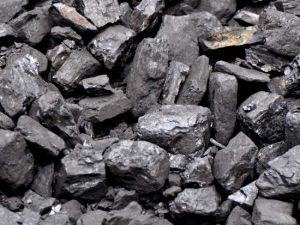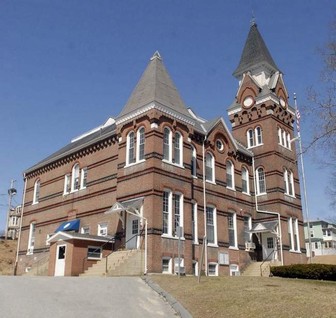Home
Focus Areas
About Us
"Boston, Massachusetts, a city with perhaps more climate scientists per capita than any other on the planet."
That's what David Abel, a Pulitzer Prize-winning journalist and filmmaker, has to say about his latest documentary, Inundation District, which focuses on Boston's Seaport District, a new waterfront development that's designed to take advantage of the city's old landfill and bring in billions of dollars in investment and tax revenue.
But Abel, who's been reporting on climate change issues for the Boston Globe for more than 25 years, says the city ignored warnings about how vulnerable the area was to flooding when planning the district.
"The history of the Seaport and the decision to build a new urban district at sea level on landfill and hard on the coast was based on the billions of dollars we spent cleaning up Boston Harbor," Abel tells the Globe.
"But once it was cleaned up, Boston had this valuable waterfront property and city officials started thinking they should do something with it and bring in some tax revenue.
The city and state spent billions of dollars creating this infrastructure to enable this new urban district.
Unlike other places that are vulnerable, the City of Boston ignored the threats and well after they understood the threats, they decided to proceed with no protections."
Selected Grant News Headlines
A customized collection of grant news from foundations and the federal government from around the Web.
Omaha, Nebraska, and Cincinnati, Ohio, have higher cumulative state and local lodging tax rates.The governor has long said the 10 million visitors who come to Hawaii each year should help the state's...more
The Creative Writing course at the University of Rio Grande do Sul offers students the chance to develop their writing skills.The participatory climate was also emphasized by the professor and...more
Painter Hayes, the creative team of Sarah and Cosby Painter Hayes, brings together a vibrant selection of work that engages with themes of identity, environment, social reflection, and kitsch...more
The playoff beard's growth from non-existence to ubiquitous tradition offers insights into how cultural norms emerge, spread and change over time.What began as a possible tribute to a tennis star and...more
In August 2023 the Federal Government launched the third edition of the Growth Acceleration Program (Programa de Aceleracao do Crescimento PAC), better known as the New PAC.The program is...more
2025: UMass Dartmouth and Town of Westport to partner on climate resiliency initiative.University will partner with the Westport Climate Resilience Committee (CRC) to assess the potential effects of...more
CEE programs are designed and directed by David Gerber, professor of practice in civil and environmental engineering and architecture."The breadth and exploration of my experience in the building...more
The Riverside Clean Air Carshare program is funded by the Clean Mobility Options (CMO) Pilot Program.CMO is part of California Climate Investments, a statewide initiative that directs Cap-and-Trade...more
Informal meeting of the Environment Council on: eco-innovation, climate change and counteracting disinformation.Minister of Climate and Environment Paulina Hennig-Kloska: "Only Europe of rich nations...more
A newly launched pilot programme aims to foster innovation, increase consumer choice and reduce costs within the financial sector.The New Zealand government, in collaboration with the Financial...more
Environment News from...
Rockefeller Foundation
Lawson Foundation
Bloomberg Philanthropies
Barr Foundation
Social Entrepreneurship
Spotlight
Energy Giants Go Public on Carbon Pollution Pricing Strategies

Some of the biggest public companies in the United States, including Wal-Mart, Walt Disney Co., Microsoft, have adopted carbon pollution pricing strategies.










